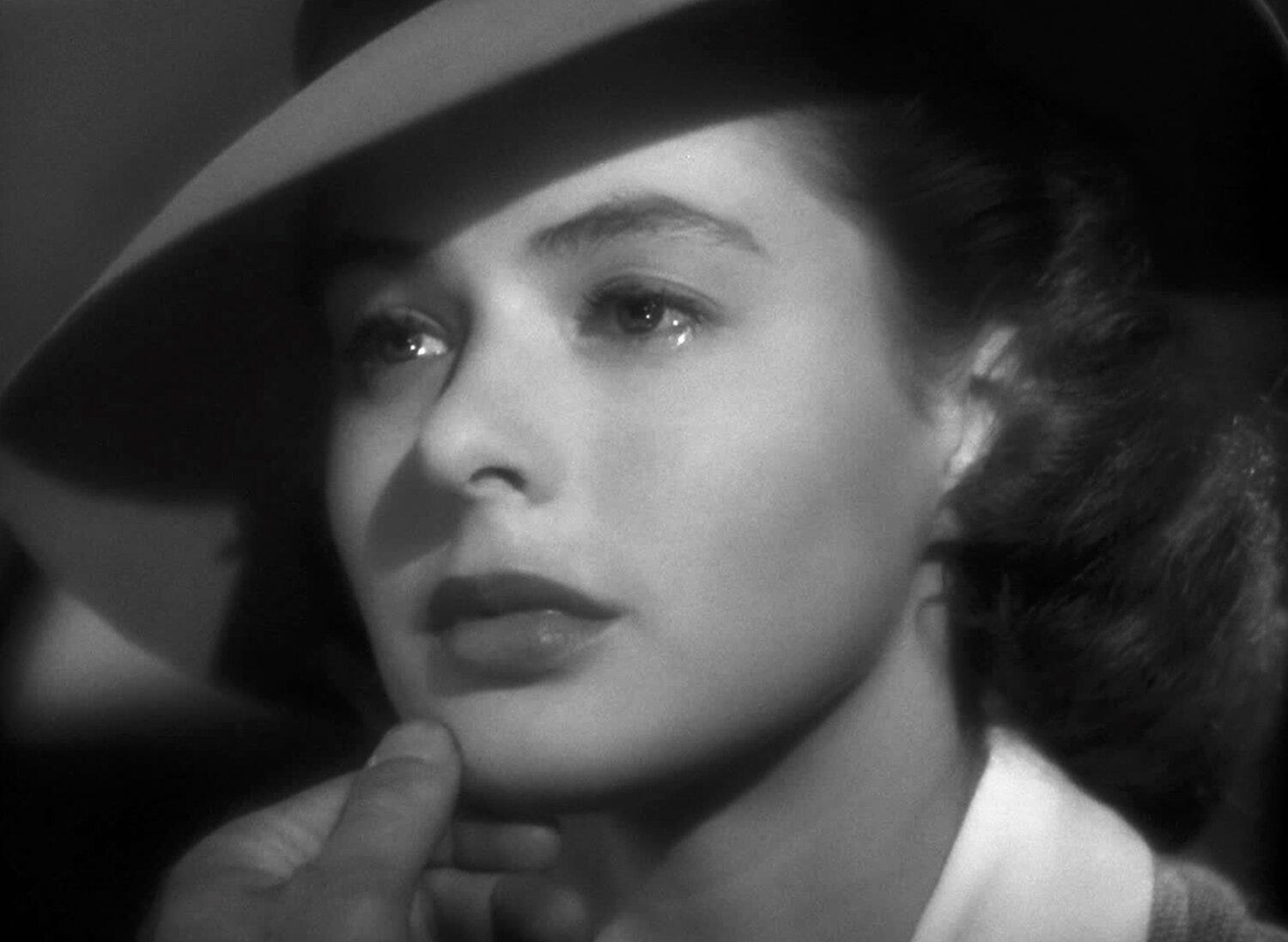He’s more myself than I am. Whatever our souls are made of, his and mine are the same.
Merle Oberon and Laurence Olivier in Wuthering Heights (1939) dir. William Wyler.
Lover, I return with guilt in hand.
Guilt for moving on and through, as lovers do, for that figure in thine hallway stands weary. A flame flickers, and I do not feel the heat. As I reflect belatedly, babbling on - hand-hurting from these here love letters scrawled with wet-hot tears - I feel an acidic gargle, a gurgling churn within the pit of mine gut. Intuition, it seems. Restless-raging for I never wish to become all too comfortable. I do not wish to lose my bloodless grasp - that pining fire, desperation, urgency I felt in earnest following the days and weeks leaving that chapel.
How do you move on?
Are you supposed to?
Do I wish to? No, not at all.
He is now only my blood. My sick-sinew, bone and bile. Tears well again. I look to his seat as I write, now fussed by an abundance of floral cushions to mask the remaining traces of morphine. Within it, with love, resides candied wisps of soft, white cat fur. I feel guilt for not preserving that chair in cellophane, maddened. A paramedic wheels him out in silence. I stand in the cold, on the drive, with my brother, as I see a man once tall collapsed-in-two, tissue paper, faltering.
I am in the ambulance now, and he cannot look at me.
“I love you.” I whisper, it lingers.
“Don’t get too rich,”
Hand in mine I rub the back of his palm, pallid and cold.
His coat now hangs against the back of the studio door, no longer carefully folded with delicate hands - this is a working man’s coat - but I lost it, lost it, when I found a single strand of silver. I thought to keep it, clutch it, encase it in a heart of glass as a Victorian ritual, but I rescind.
Much has occurred within a year, dear love, that I must now be thankful for, and I wish he were present to share it with me. To once again talk over tea with daytime TV, to love. Steven was, and continues to be, a beacon of strength, knowledge, wisdom and half-truths. I hope to honour his memory, sincerely, and feel that in my writing at present I have failed to do so. I grow weary in speaking of painting, when at present my mind is elsewhere. That mounting list of ideas, babe, continues to rise behind me. For now, I let my eyes close.
His favourite colour was red, undoubtedly.
His favourite film, of all time, was Casablanca.
Ingrid Bergman in Casablanca (1942) dir. Michael Curtiz.
As such, all begins again as I return to film, baby-angel. Title cards, opening credits, theatrical posters lining endless darkened corridors, all of it. Hitchcock, all of it. I wish to paint Casablanca: big and brite and beautiful, its whirling cursive script once illustrated so wistfully by American commercial artist Bill Gold. I wish to honour that love, ongoing.
I wish to paint everything, everything, red. With adoration.
It is hard, in truth, to reflect upon the presence which this newsletter has had within my life over this past year, as, unknowingly in its early stages, a means to resolve my grief and anguish, loud and static, now slightly softened, and to find a bittersweet commonality in that grief with others. Year One in blood-red ink, rusted-copper-malted-mush, is in mine arms. A year of love letters to thee: essays upon film, magick and lovers in the dark. I am so proud of her. I wish he could read it.
I fear I’ve become too engrossed in it all, too romantic, heart-hanging-heavy, sword of silver pointed to the skies too high, too high. I try, and fail at times, to strike a balance between life and work, to not divulge all too much, to preserve. I adore fantasy, I do - Marilyn swirls in a Technicolor motion, gaze weighted, heart sultry, skin soft - but I fear I may fall into medieval scripture to never again be found. The film is the thing, the film is talking.
When watching classical American cinema, I often think of the body: its materiality, mortality, impermanence. How all who move me are long dead. I look to the physical embrace Oberon and Olivier share as Cathy and Heathcliff in 1939’s Wuthering Heights, two lovers bound by a volatile, frenetic physicality. A slender palm wrapped taut as ribbon against his skin, cloying in its intensity. An affectionate gesture to be ingrained in film for I to cry at, almost one-hundred years later. In film, there is no death.
Blackened velvet curtains glimmer and glide to a close, as a grand orchestral swash emanates throughout the land.
THE END appears, and, as always, the beginning begins again.






